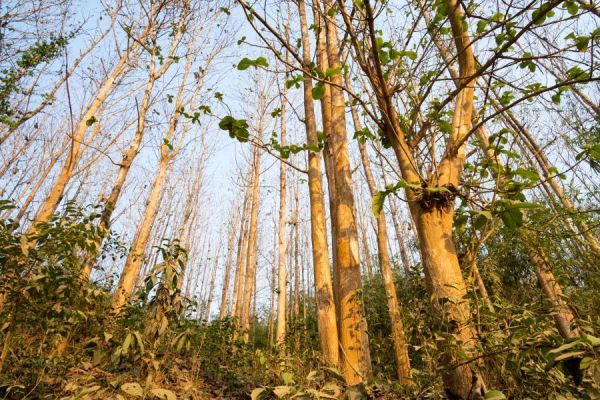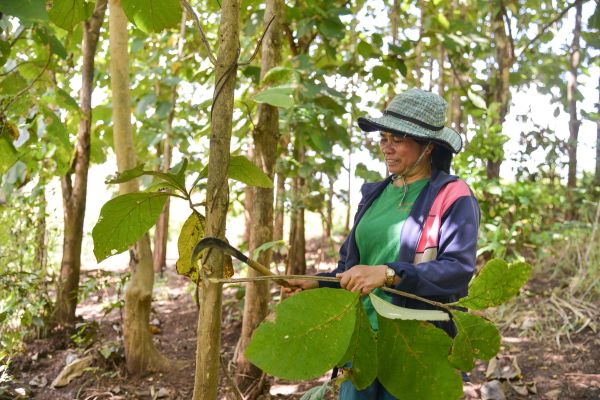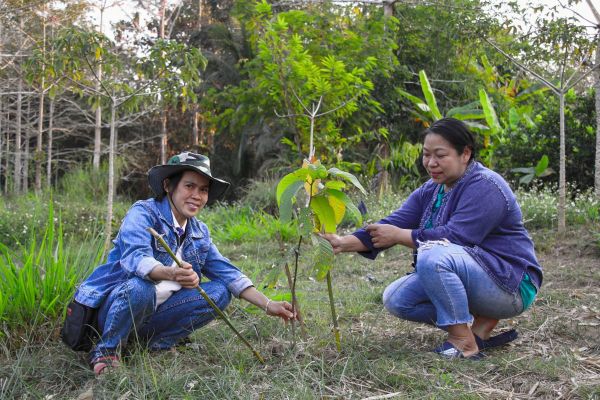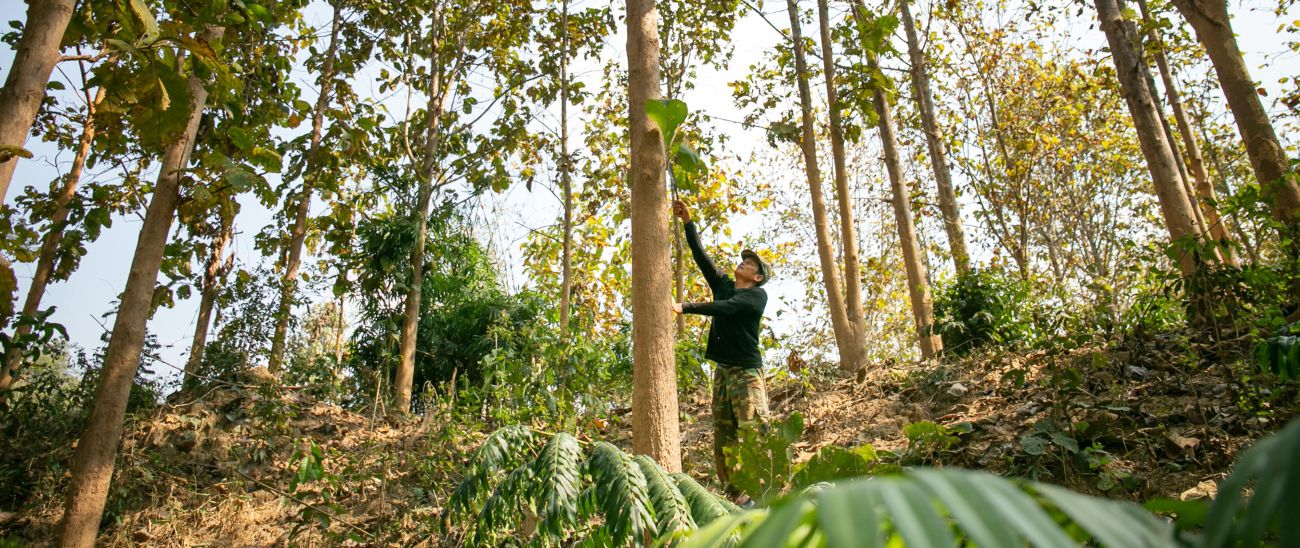
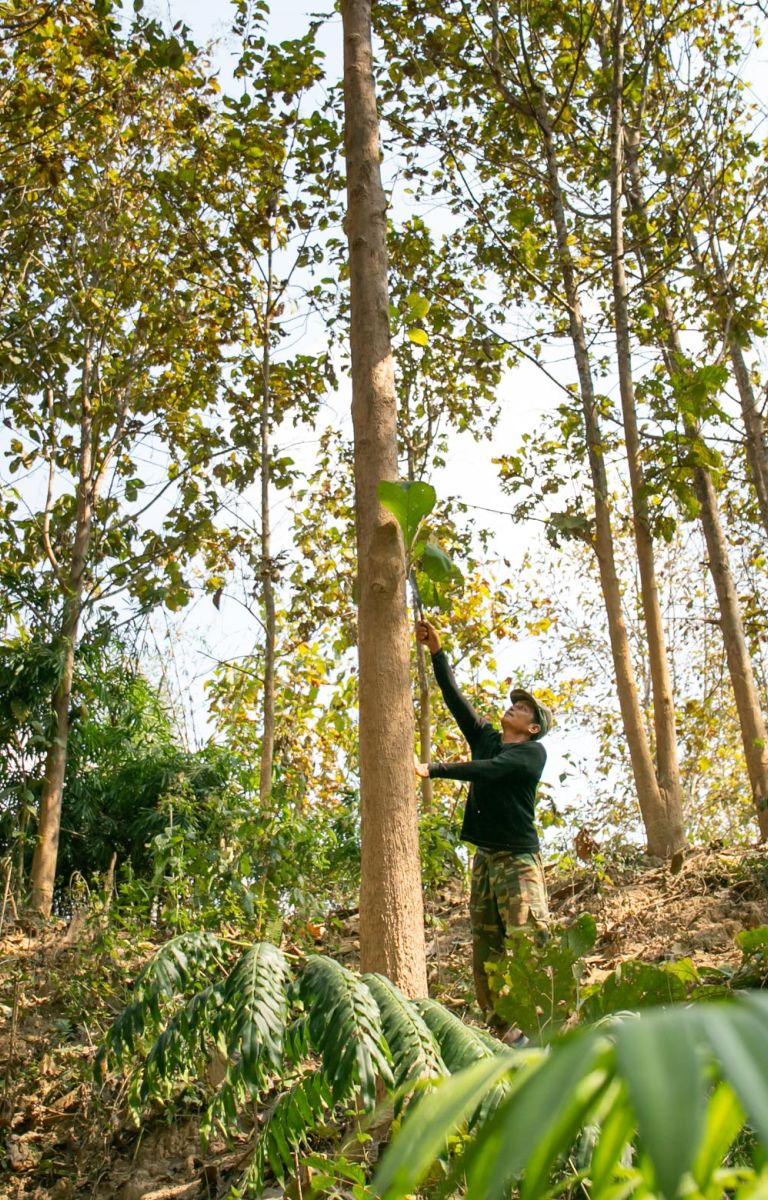
Villagers in Chau Thang Commune, in Viet Nam’s mountainous Nghe An Province, used to recklessly harvest Lung bamboo from local forests to sell to traders and processors. They wasted almost half of all they cut, and harvested so much young bamboo that the forests were struggling to regenerate. The rapid depletion of the bamboo forests threatened the biggest source of household incomes.
But now, villagers are harvesting bamboo sustainably. They are using nearly all of what they take and are earning more through a partnership with a local company that makes handicrafts. The bamboo forests are recovering.
“Our communities have realized that Lung bamboo and other non-timber forest products will be degraded in the next five years if they don’t protect and sustainably harvest these resources,” says Sam Van Hung, the chairman of Chau Thang Commune.
This transformation came about through an initiative called FLOURISH, which RECOFTC implemented in Lao PDR, Thailand and Viet Nam between 2018 and 2022.
It has shown that, with government support, production-driven partnerships between forest communities and the private sector can improve livelihoods and economic development while restoring forest landscapes.
Bamboo boost
Lao PDR, Thailand and Viet Nam all have ambitious targets for increasing forest cover. Smallholders who sustainably manage and restore forest land could play key roles while benefiting economically from forest products. But they are deterred from doing so because they lack secure rights, have knowledge and skills gaps, and have limited power in trading relationships.
RECOFTC established FLOURISH to test solutions to these challenges. In each case, ensuring that community members had secure rights to manage and use forest resources was key.
In Viet Nam, the team worked with the local government’s Nghe An Forest Protection and Development Fund and the International Bamboo and Rattan Organization. They helped 241 households secure land-use and forest-use certificates that give 50-year tenure rights. This incentivized farmers to manage bamboo forests sustainably by giving them legal rights to plant, harvest and use the bamboo.
“Long ago, we dreamed of having our forest land-use certificate,” says Phi Nga, who chairs Chau Thang commune’s Women Union. “We love the forest, we care about the forest, we invest in the forest when the forest is our own. We have many ideas for developing forestry start-up businesses after receiving our forest land-use certificates.”
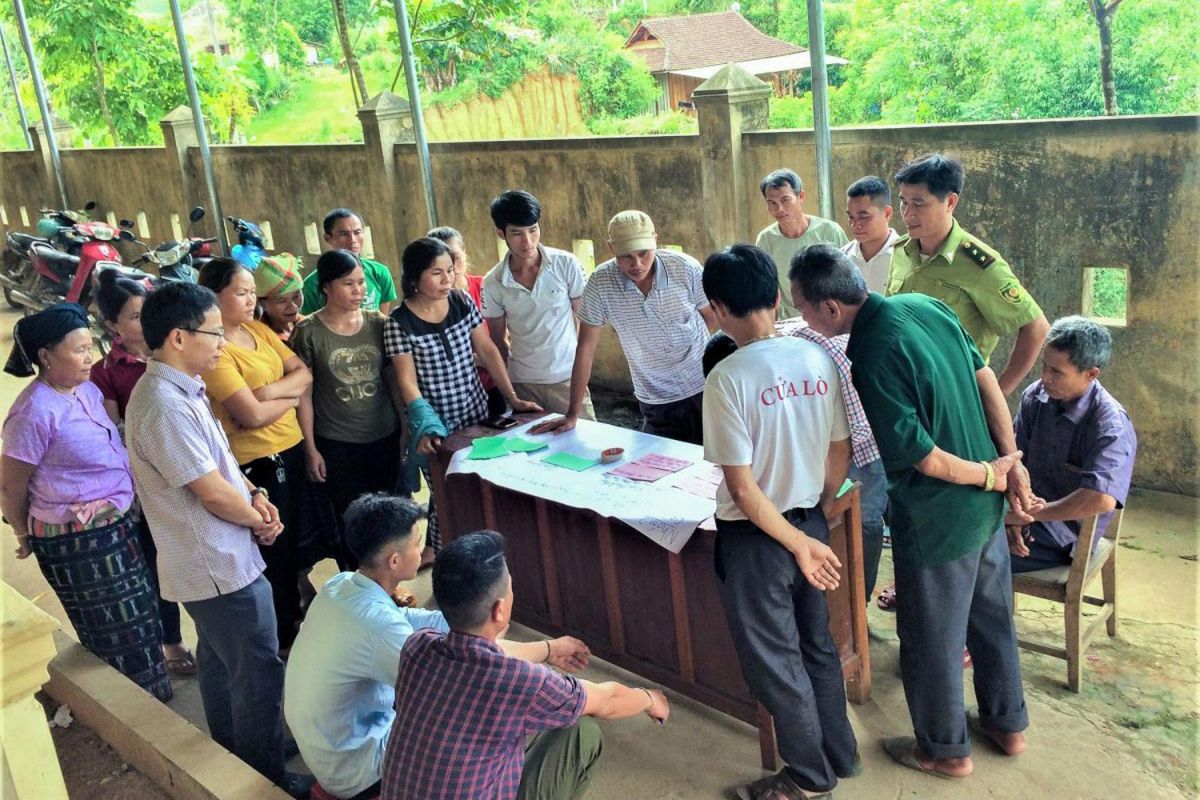
FLOURISH also provided training on forest management and developed partnership agreements between groups of bamboo harvesters and a private company. The company has committed to buying bamboo at an agreed price and is supporting the villagers to manage and protect their bamboo forests. This has increased incomes, improved supplies of raw materials and expanded the quality and area of Lung bamboo.
Tenure and teak
FLOURISH had similar success in Lao PDR, where cash crops, infrastructure and other land uses are replacing teak plantations. FLOURISH enabled 267 smallholder households in Bokeo and Xayaboury provinces to survey, document and register their teak plantations and to acquire the tree certificates they need to sell timber legally.“I want to sell the trees in the future and use the income to expand my plantation,” says Xiengchanh, one of the smallholders FLOURISH supported in Xayaboury.
FLOURISH also provided training on silviculture and facilitated partnership agreements between groups of teak growers and private sawmills. Smallholders are now earning more for their timber. With local government support, the project has promoted sustainable forest management, improved supplies of legal timber for the private sector, reduced conflict over land use and incentivized tree planting. In one of the project sites, Koklouang Village, smallholders have planted more than 11,000 teak trees.
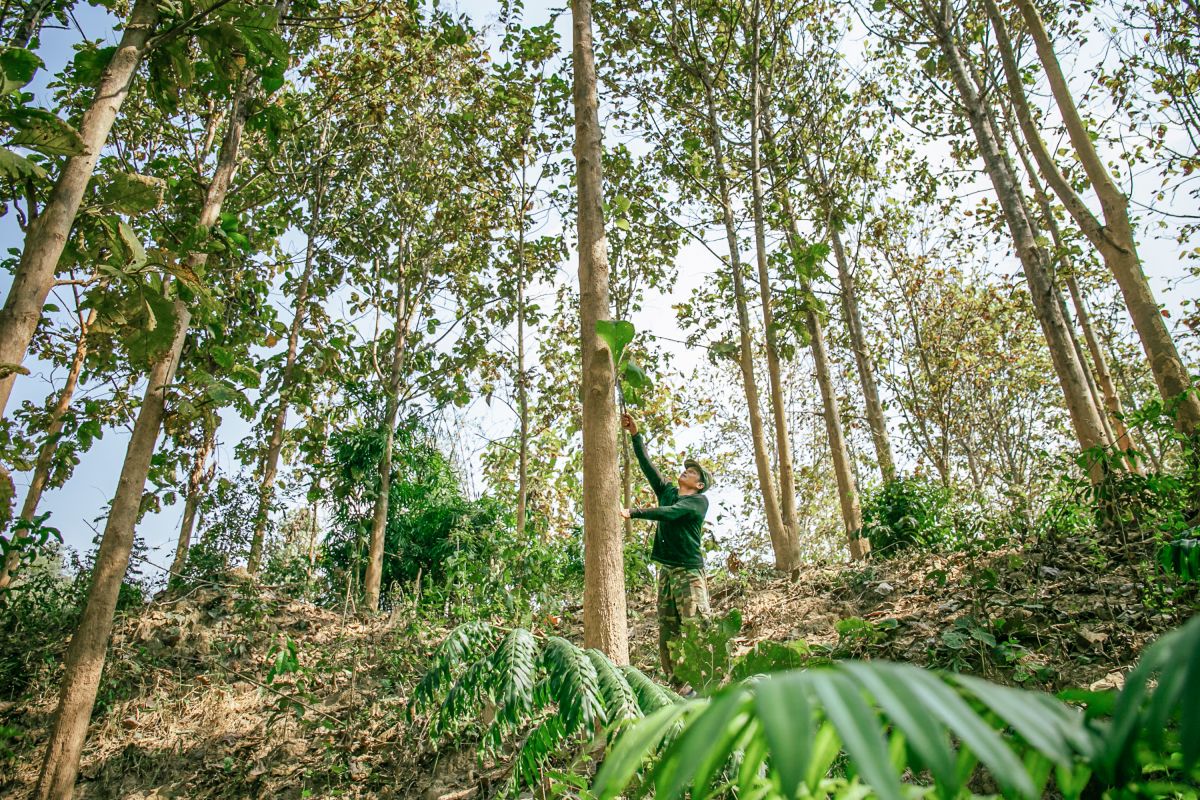
In Thailand, smallholders are reluctant to plant teak trees as they cannot be sure they will benefit from them after 25 years of growth. Challenges include the slow allocation of public land to farmers and communities and the complex and unclear legal requirements for tree planting, timber harvesting, transport and trade.
Working with communities in Nan province, FLOURISH piloted approaches for demonstrating the legality and controlling the supply chains of teak grown by smallholders on public land.
In August 2022, the team published a policy brief describing how policymakers can support smallholders who want to grow and sell teak legally and sustainably. Implementing the recommendations would encourage smallholders to plant trees and manage forests sustainably. It would also enable people to develop community-based enterprises and improve supplies of legal teak for the private sector.
Looking ahead
An independent evaluation in 2022 concluded that FLOURISH largely achieved its intended outcome.
“With its focus on landscape-level training and capacity building, FLOURISH is likely to lead to long-term impact,” it said. The evaluation said that equitable, production-driven partnerships of the kind FLOURISH facilitated should be further supported and prioritized.
“By helping people secure livelihoods from productive forests, we can actually set up a dynamic where healthy forests produce improved income and well-being,” says former FLOURISH project coordinator Trang Thu Hoang. “And the whole thing is fuelled by market dynamics rather than grants, loans or subsidies. We want to address the root causes of deforestation and degradation, which is mainly poverty.”

